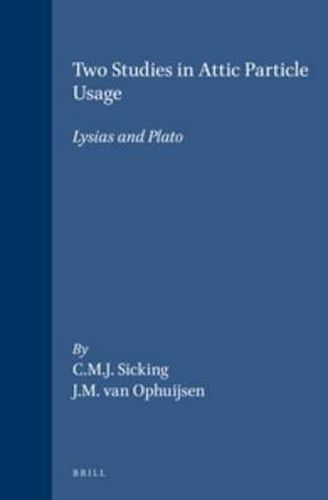Readings Newsletter
Become a Readings Member to make your shopping experience even easier.
Sign in or sign up for free!
You’re not far away from qualifying for FREE standard shipping within Australia
You’ve qualified for FREE standard shipping within Australia
The cart is loading…






In the first part of this work, C.M.J. Sicking, by using two speeches by Lysias, discusses the articulation of the text by devices marking the beginning of sentences. A separate index offers some considerations bearing on the value and use of five so-called interactive particles and some particles found in interrogative sentences. In the second part, J.M. van Ophuijsen deals with oun , ara , deh and toinun , all of them traditionally regarded as inferential particles. The discussion focuses on, but is not restricted to, Plato’s Phaedo . Both authors have adopted a deliberately eclectic approach, taking advantage of what modern linguistics research has to offer without at the same time neglecting what many generations of scholars from Hoogeveen to Denniston have contributed to our understanding of ancient Greek.
$9.00 standard shipping within Australia
FREE standard shipping within Australia for orders over $100.00
Express & International shipping calculated at checkout
In the first part of this work, C.M.J. Sicking, by using two speeches by Lysias, discusses the articulation of the text by devices marking the beginning of sentences. A separate index offers some considerations bearing on the value and use of five so-called interactive particles and some particles found in interrogative sentences. In the second part, J.M. van Ophuijsen deals with oun , ara , deh and toinun , all of them traditionally regarded as inferential particles. The discussion focuses on, but is not restricted to, Plato’s Phaedo . Both authors have adopted a deliberately eclectic approach, taking advantage of what modern linguistics research has to offer without at the same time neglecting what many generations of scholars from Hoogeveen to Denniston have contributed to our understanding of ancient Greek.